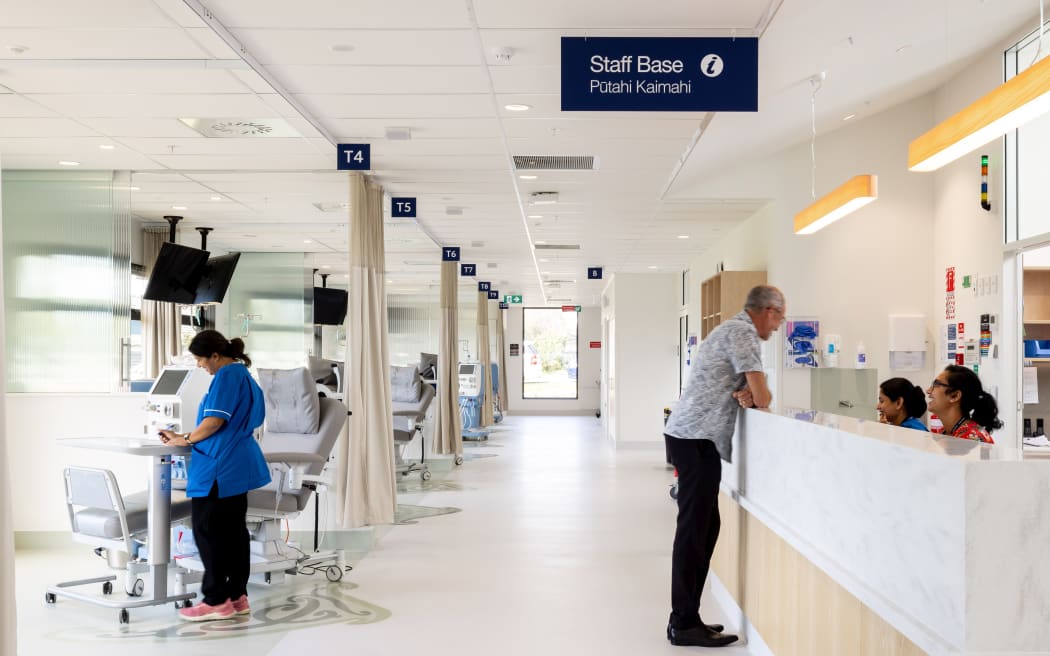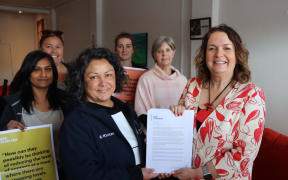
Supplied / Taranaki Base Hospital Photo: Supplied / Taranaki Base Hospital
National's threat to gut Māori health partnership boards would lock in poorer health for whānau, says the head of Taranaki's board.
Iwi-Māori partnership boards were set up under last year's health reforms and Te Whatu Ora (Health NZ) needs their agreement to sign off local health plans.
National's health spokesperson Dr Shane Reti said if his party wins the election the partnership boards will lose that influence and be demoted to the same level as any other local health sector group.
"An iwi-Māori partnership board will be collaborative at the provider level along with every other major stakeholder. That includes hospitals, that includes all of the NGOs, every major provider of community care."
Taranaki's board is Te Punanga Ora, and its chairperson Te Pahunga Davis said National's plan left him "shattered."
"It's like one step forward, 10 steps back."
Davis also served on the previous iwi relationship board which advised Taranaki District Health Board on Māori health.

"For 21 years under National, under Labour, we got nothing, no movement. The life span remained the same, the health determinants for Māori were poor and remained poor."
"It was lip service at best... You could design a health strategy and people would look at it and say 'oh yeah' and carry on doing what they were doing."
"If we have a reversion to that, things will remain the same."
In 2022, the Pae Ora Act set up iwi-Māori partnership boards and the independent Māori health authority Te Aka Whai Ora to work in parallel with the health ministry and Te Whatu Ora.
Reti has long promised to scrap Te Aka Whai Ora and said the partnership boards would lose their powers because they had made no difference to Māori health.
"Show me one outcome that's better - because I'll be very, very outcomes focused."
Gigantic shift
Davis said that was just political posturing.
"We've been going five minutes. What sort of changes can you make in five minutes, for the huge moves needed?"
"Of course there's not going to be a momentous shift right away - we're not even started."
He said there had been a "gigantic shift" in Māori having a legislated say in decisions about what services they get.
"The opportunity for community voice and community involvement in the design of the system - that has been amazing."
"We have more say in establishing priorities and getting agreement on potential service to localities."
Labour's Māori health spokesperson Peeni Henare recently warned that the newly-enhanced say for Māori under the Pae Ora Act "is seriously at risk".
"All it takes is a majority in Parliament - and Act and National have both said this kaupapa our people have fought so hard for [would be] gone," he said in August.
Davis said doing away with partnership boards would face significant resistance.
"It's legislated 15 iwi-Māori partnership boards, but there are more than 70 iwi sitting in behind them. I think that's a long road."
He said it was unclear how a National-led government would organise the health system at a regional and local level.
"It could be fraught. I don't know what Reti is talking about and I don't think he knows what he's talking about either."
Reti said National hadn't yet decided on its preferred regional health structure, but said partnership boards might get a single seat at a local decision-making table
Davis said whatever government is elected will face the same marked disparities in Māori health that have persisted for over 100 years.
A Māori pēpi born today is expected to die 7.5 years earlier than a non-Māori with the same birthday.
Māori health status trails non-Māori across almost all chronic and infectious diseases, as well as injuries, including suicide.
Mortality rates are also higher for Māori at nearly all ages. The cardiovascular disease mortality rate is twice as high for Māori as it is for non-Māori, and cancer mortality rates are 1.5 times higher.
Local Democracy Reporting is Public Interest Journalism funded through NZ On Air




